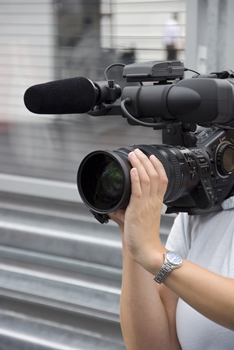U.S. Supreme Court Pulls Plug on Aereo
Copyright Attorney
by Tal Grinblat
818.907.3284
For eight dollars a month, customers in 10 metro areas could watch real-time television broadcasts or record programming via computer and smart devices, courtesy of a company called Aereo.
For consumers, it was like having access to a cable company’s digital video recorder (DVR) box on your cell phone. For the entertainment studios and program creators though, it was like giving a thief the keys to the store.

Chet Kanojia, founder and Chief Executive Officer, launched the startup last year, and immediately faced allegations of copyright infringement, since Aereo neither owned rights to the programming, nor was licensed to perform the work publicly. The plaintiffs first sought a preliminary injunction in Federal District Court – that petition was denied. A Second Circuit Court of Appeals upheld that denial.
Yesterday, the U.S. Supreme Court found that Aereo violates the federal Copyright Act of 1976 (The Act). The Court considered two issues. First, did the internet company “perform copyright work publicly”, as described in §106(4), and second, whether or not Aereo “transmits a performance” as described under §101 of The Act.
Aereo claimed it didn’t perform anything, it merely offered its subscribers the software that does what a TV antenna or DVR would do. This software simply responds to the subscribers’ instructions. The company bolstered its defense with technical explanations of how they operate:
Thousands of tiny antennas stored in warehouses capture broadcast signals, and each antenna is assigned to an individual Aereo customer. No two customers are watching the same copy of the program being broadcast or recorded; therefore, there is no public performance by Aereo.
Chief Justice Stephen Breyer writing yesterday’s opinion was joined by Justices Ruth Bader Ginsburg, Elena Kagan, Anthony Kennedy, John Roberts and Sonia Sotomayor. The Justices disagreed with Aereo’s defense:
The fact that each transmission is to only one subscriber, in Aereo’s view, means that it does not transmit a performance “to the public.”. . . these differences do not distinguish Aereo’s system from cable systems, which do perform “publicly.” . . . We do not see how the fact that Aereo transmits via personal copies of programs could make a difference.
Blame Cable TV

Before the 1976 amendment to the 1909 Copyright Act, cable television companies (known then as “community television antenna systems” or CATVs) intercepted broadcasts to relay the signals to their own paying customers. That was considered legal until lawmakers closed the loophole by writing in what’s now known as the “Transmit Clause”.
This clause makes these retransmissions copyright infringement. Section 101 says:
A “transmission program” is a body of material that, as an aggregate, has been produced for the sole purpose of transmission to the public in sequence and as a unit; and to “transmit” a performance or display is to communicate it by any device or process whereby images or sounds are received beyond the place from which they are sent.
Section 106 of The Act gives a copyright owner exclusive right to perform the work publicly.
Tal Grinblat is a Shareholder in our Intellectual Property Practice Group. Contact him via email: tgrinblat@lewitthackman.com or by phone: 818.907.3284.
